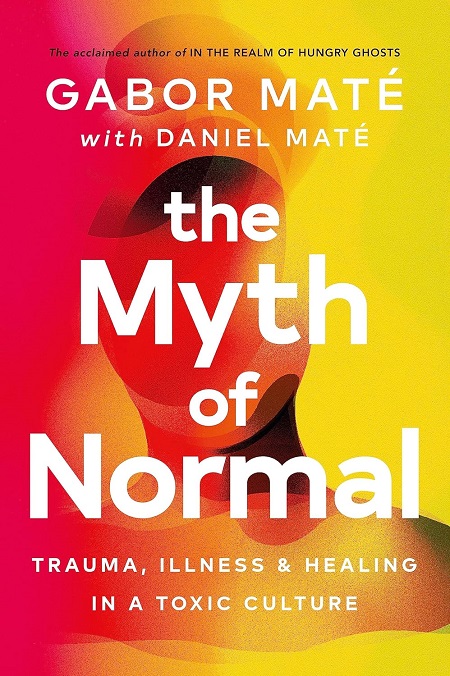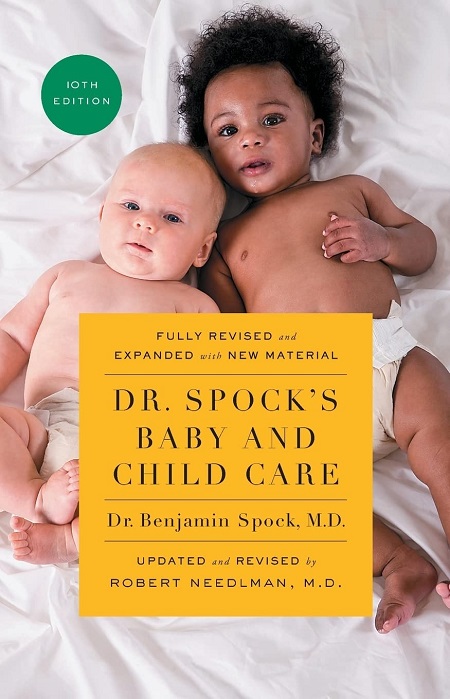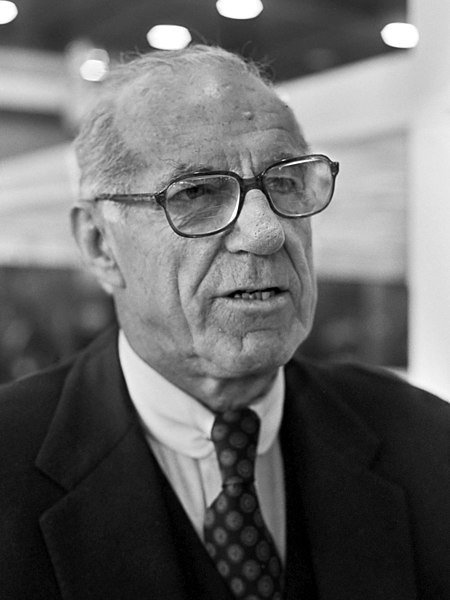Positive Health Online
Your Country

Gabor Maté, Meet the Real Dr Spock: He’s Not a Behaviourist!
listed in authority rights freedom, originally published in issue 292 - February 2024
Two Stories
1943, Annapolis, USA
“Have a bite to learn to like it. And stop making faces!” my father would shout angrily, as, gagging and tearful, I struggled not to vomit over the “bite to learn to like it” of whatever vegetable it was.
I dreaded mealtimes. And as a precocious reader, I sought an explanation for my misery.
The book I found on our parents’ shelves was The Psychological Guidance of Infant and Child by J.D. Watson, first published in 1928 (See List). Influential nationally and internationally, this book was the authority for more than one generation of parents. His advice about the child who “regurgitated his orange juice” was simple. Make the child drink what he had regurgitated.
A behaviourist, he believed that children’s psychological development was entirely determined by conditioning. Chapter 2 was entitled “The Dangers of Mother Love”. In the beginning of the book, he insists that his ideal would be for all children to be brought up in institutions with rigid rules about feeding and sleeping, and with constant changes of caretaker to avoid the danger of emotional attachment(!). Failing this “ideal”, he told parents they must not let their feelings get in the way of imposing rigid routines on their infants.
https://www.amazon.co.uk/Myth-Normal-Illness-Healing-Culture/dp/1785042718
In Gabor Mate’s most recent book, The Myth of Normal,[2] he tells of his unhappy mother in pre-war Hungary, acting on this sort of advice, struggling to be strong and resist the crying of her hungry infant. He rightly insists this imposes serious trauma – on both baby and mother.
Today we can recognise that Watson’s heartless ‘ideal’, practices depriving an infant of any opportunity to form emotional attachments, are a pretty good formula for producing emotionless psychopaths – if the infant didn’t simply wither away, like those little mummies found in overcrowded Rumanian orphanages, during the era when dictatorial policies imposed repeated motherhood on its women.………
1961 Boston, U.S.A.
My best friend had had her first baby, and I went to see her and meet the baby in the hospital a few days later. I remember walking through the doors into the ward, first into an anteroom where, behind a glass wall, there were rows of cots with babies in them. A further door opened into a large ward, where I found my friend in her bed, tired but happy.
I had imagined meeting her, baby in her arms, proudly showing me the tiny creature, possibly even offering to let me hold the little one for a carefully guarded moment or two before handing her back to her mother.
‘Would you like to see the baby?’
‘Yes, of course!’
‘I’ll just put my slippers on, and we’ll go out there.’
We walked across the ward, out into the ante-room and looked eagerly through the floor-to-ceiling glass partition.
‘There! She’s in the second row, the third baby from the left.’
That night, I had nightmares. 60 years later, I still can’t recount this without tears.
The institutional separation of her infant from her arms felt to me like an unutterably cruel, barbaric act. It took years of struggle by women of that and subsequent generations, and some serious research, to establish the validity of these feelings: the crucial importance for both mother and child of close physical contact to establish that vital mother-infant bond.…
A few years later, I was going to give birth to my own child. Having come to the UK from America, I had been delighted to learn that home birth was not uncommon here, while it was still the practice in hospitals to remove the new-born infant from her mother and whip her away to a cot in a nursery not unlike the one in the Boston hospital. When my doctor told me that a first birth would have to take place in hospital, my hysterical weeping soon persuaded him to let me give birth at home.
My interest in how best to bring up a child and educate children had persisted over the years. The horrors that had occurred in Germany during WWII forced one to ask; what child-raising practices had led to a generation of young men willing and able to perpetrate the dreadful cruelties of the extermination camps? And closer to home, how could I avoid the errors of my parents in bringing up my own children?
There was still plenty of behaviourist advice around. The New Zealand doctor, Truby King, whose advice became influential across the English speaking world. “Apart from nutrition, King's methods specifically emphasized regularity of feeding, sleeping and bowel movements, within a generally strict regimen supposed to build character by avoiding cuddling and other attention.
There were also advice manuals written by psychoanalysts, which placed the baby’s psychological well-being at centre stage – which warned of the harm that could come to a child brought up by a neurotic mother. The baby must be handled with all the sensitivity required to avoid damaging emotional trauma. Implicit was that mothers had to be in perfect mental health to live up to this standard. It was clearly impossible – your guilt began before your first child had even been conceived! And it set the stage for mothers to be blamed for any and every problem a child might develop, as they were, throughout the 20th century, when the ‘dangers of mother love’ were replaced by the dangers of imperfect love from an imperfectly mentally healthy mother.
https://www.amazon.co.uk/Spocks-Baby-Child-Care-10th/dp/1501175335
Introducing Dr Spock
Dr Benjamin Spock’s ‘Baby and Child Care’ was first published in 1945. The well-worn paper-back edition which was my bible, bringing up my own children, will probably have been the edition published in 1957, although since my children were born in 1964 and 1965, they may have benefitted from the 1968 edition. (In 2023, the only copy Amazon could offer was the one I am using as reference for this article: Dr Spock’s Baby and Child Care, Benjamin Spock, MD, and Stephen J. Parker, MD. With Copyright going back to 1945, this revised edition was first published by Simon and Schuster U.K. Ltd 1999.)
The continuity of copyright suggests that much of Dr Spock’s original material is still there. Certainly, his attitude of kindness and good sense, towards both infant and parent, still dominates the entire volume.
https://en.wikipedia.org/wiki/File:Benjamin_McLane_Spock_(1976)_02.jpg
When I first encountered his book, his warmth and respect towards his readers – the parents – felt like having a loving mentor standing behind you, ready to offer information and support, throughout your experience of parenthood. Information and support, never dictation about what you must, or must not do.
In the current volume, this begins on page 1, The Parents Part. Headed ‘Trust Yourself’, the very first sentence is ‘You know more than you think you do.’ We are, he assures us, guided by our natural feelings, as well as by our own experiences of being brought up.
Gabor Maté is passionate about the harm wrought by suppressing our natural parental feelings.
In his reassuring parents that their natural feelings are reliable guides, Spock has preceded Mate by 70 years. He [Spock] explained the advantages and disadvantages of parenting whether you wanted to follow definite routines for feeding and sleeping, or you wanted your care to be in response to the child’s natural rhythms. Typically, he doesn’t tell you which to use. He describes the advantages and disadvantages of each and explains how best to manage both.
He makes clear both that he never advocated “letting the baby cry”, [p. 196] and that, equally, he was not in favour of the kind of permissiveness that allowed children to do damage or harm, come what may.
He explains that parenting comes more easily to people who are happy with the way that their parents have brought them up than to people who want to bring their children very differently and are trying to work out their own path.
He also points out that children can have very different temperaments [p. 7] so that the same approaches that worked with one might not work with the next one! For example, a child born with a tendency towards very regular biological rhythms will adapt more easily to a regular schedule, while a child whose biological rhythms are more erratic will be more comfortable if parents are responding to their needs as expressed at the time (feeding on demand, sleeping when they are sleepy).
He points out that it is no one's fault if there is not a good fit between a child’s temperament and that of her parents, and that if by good fortune, there is a good fit, life will be easier all round. If not, parenting will be more of a challenge, but parents should not feel guilty or as if they are failing when things are more difficult.
There is more to say, specifically about his advice concerning sleep, but first:
Introducing Gabor Maté
Gabor Maté is, to me, a natural successor to Dr Spock. They are both my heroes in pushing for a humane society, and against all the unnatural pressures which contemporary society imposes. The foundation of a humane society is surely the humane treatment of our children – which requires the humane treatment of the adults who are their carers – all of us.
https://www.youtube.com/watch?v=WgrpyRG2vFg
Dr Benjamin Spock On Living Free!
Credit: Jim Kindheart
(I like to imagine that it was Dr Spock’s generation of young Americans who objected to the Vietnam War – because they objected to war itself, as well as this specific war. That generation did not become ‘well-adjusted’ citizens of a country pursuing this unjustified course of action. And in fact his most vocal accuser of ‘permissiveness’ was enraged specifically about the generation that refused to collaborate in the Vietnam war. [p xxxvi, About this Seventh Edition])
Gabor Maté’s masterpiece, The Myth of Normal is a brilliant expose of the harms our contemporary society inflicts upon us, and the range of damage these harms cause, beginning with infant and childhood trauma. It is the book we need for these times.
Maté goes into detail about child-rearing practices in the chapter “Horticulture on The Moon”. He is passionate about meeting the natural needs of infants and children, about the wisdom of indigenous cultures which keep their infants close, even bound to their mothers, which naturally respond to any expression of need or distress, in which violence towards children is virtually unknown, and would meet with instant disapproval. Spock expresses this same appreciation for the practices of indigenous people.
Maté point out how our culture separates children from closeness to their mothers (which Watson, the consummate behaviourist, calls a ‘danger’). Spock enumerates all the devices available in his time which kept the child separate from the mother, and advocates for those which keep the baby close.
BUT THEN
I was contentedly listening to my audiobook of The Myth of Normal: Trauma, Illness and Healing in a Toxic Culture by Gabor Mate, co-authored by his son, Daniel, Chapter 12, ‘Horticulture on the Moon’, and suddenly heard Mate’s comments about “Dr Benjamin Spock”.
He first states that twentieth century child-rearing advice dated from the mid-19th century focus on bringing children up to be “socialised”. (I am guessing that this is the origin of the terms “well-adjusted” and “maladjusted” as a way of talking about mental health.) Maté rightly points out that being “well-adjusted” to a toxic society is not being mentally healthy. (I have always objected to those terms for the same reason.)
Maté says that this characterized child-rearing advice throughout the twentieth century, making no mention of Watson, the behaviourist, but instead, citing Spock, Watson’s mid-century antithesis, as though Spock were a behaviourist. Maté quotes Spock as speaking of “the tyranny of the child”, as though Spock thought all children were tyrants. He describes Spock’s advice for parents of this tyrannical child, to get him to sleep – “cheerfully and kindly say good-night, go out the door, close it, and don’t go back” – as though this would be a traumatic experience for the child, totally against her need to feel secure that her parents were there, and loved her.
Of course it would! But I could not believe that Spock would ever have described children as tyrants, or that he would have suggested anything cruel. That was the point at which I ordered the 809 page volume I am using for this article, and started combing it for “the tyranny of the child”, and this specific advice.
Spock makes clear the importance of the bond between the new-born and the mother. [1, p. 69, para 117, Bodily Contact and Other Bonds]. In the mid-20th century American culture still determined to separate mother and infant from birth, in which birth anywhere except in a hospital would be regarded as a shocking and dangerous departure from proper practice, he insists the mother should be allowed to spend time with her new-born, and should if at all possible, have rooming-in – the baby and mother together from birth. Not the usual hospital-imposed separation. In another section, he points out all the ways in which that culture separated mother and infant, and how many indigenous peoples keep them close.[1] p. 118, How to be Natural] These are both topics which Maté develops passionately in Horticulture on the Moon.
But what about Mate’s first reference to Spock – the advice, in the case of “Resistance to Sleep” in which the tyrannical child appears?
Moving on from Spock’s emphasis on the importance of physical closeness from birth, I find his specific advice about babies' sleep [1, p. 88, para 147, Mixing up day and night] begins with an explanation that since, in the womb, there is no difference between day and night, parents might encourage babies to sleep at night by making what happens in the daytime interesting, with stimulating play and socializing, and letting things get boring when it gets dark. Insisting that he never advocated leaving babies to cry, [1, p. 196, Letting Babies Cry: I never had a letting-babies cry philosophy.]
Elsewhere, he does suggest that parents avoid anxiously rushing to a baby who wakes up in the night. Maybe she is just restless and will go back to sleep. If she is anxious, it’s not helpful to confirm her anxiety by rushing in as though there really is danger. But if she does not go back to sleep, by all means go to her. She may be hungry, or uncomfortable, or need a reassuring hug. If she has waked early and wants to play, try to encourage her to go back to sleep. But maybe Dad is going to be away for a long day at work and welcomes an early morning play session. That’s fine too.
Nothing about the tyranny of the child so far!
The long section on dealing with colic [1, p185-192, Crying in the early weeks] gives ample insight into Spock’s approach to this most challenging difficulty for parents, especially new parents, in the early weeks of an infant’s life.
He tells worried parents that this apparently agonised crying is not understood, that babies who have colic do not suffer long-term harm, and it does not mean the parents are doing anything wrong. There is no way of dealing with this agonised crying that is guaranteed to work, and he simply tells the frustrated parents desperately trying anything and everything to help the baby get off to sleep “do whatever feels right to you. There is no right or wrong way to handle this situation.” [1, p. 192] At no point does he suggest that a child in evident distress should have his distress ignored or be shut away to cry alone.
Colic generally fades away by the time the baby is three or four months old, and finally, later on…. we find the words Maté quotes so contemptuously. Following his declaration that he has never had a “let babies cry” philosophy, Spock continues: “In section 773, I discuss chronic resistance to sleep, a relatively uncommon, long-lasting problem that takes months to develop.” Turning to page 468, we finally find para 773. Spock explains – sometimes (for example, during the harrowing weeks of colic), baby and parents have grown accustomed to a routine in which parents carry the baby around to soothe her, sometimes for hours, before she can finally fall asleep. The colic has now subsided, but still the baby, even when exhausted and dropping off, jerks awake the moment she is put down in her cot, and begins to cry again. (As I am writing this, it seems perfectly obvious that the child, suffering no longer, may fear that if her parent puts her down to sleep, the pain might return.) A situation in which the whole family is increasingly exhausted from hours of walking around with a sleepless baby is doing harm to everyone. “Even the baby senses, I think, that she shouldn’t be able to get away with such tyranny.” Finally, the ’t’ word. Only here, in this context.
It is in this rare and extreme situation that we find Spock reassuring the parents that if they can bring themselves to be so apparently hard-hearted, the problem can be relatively quickly resolved. It is here (and only here!) that he gives the advice to (calmly and affectionately!) put the child to bed, and despite her protests, walk out the door, and not go back.
Usually the child will cry for about twenty minutes the first night, a shorter time the next, and within a few days, she goes easily to sleep. The whole family will be feeling the benefits, including the child herself.
He tells parents that if they really can’t bear to leave the child, the same result can be achieved by staying by the crib and stroking and reassuring the baby but not picking her up, although this will take longer.
If I’m right that this sleep resistance could be caused because the baby may fear the return of pain if she is not being held by the parents, it makes sense to allow her to cry for the time she needs to find out that it’s safe to lie down to sleep – the pain does not return.
This, supposedly cruel and heartless advice, given to lovingly resolve a very specific problem that can be so harmful to baby and parents, takes up two pages out of the 809. But it is to this advice, and this advice only, that Gabor Maté refers in his excoriating dismissal of Dr Benjamin Spock.
…………….
Gabor Maté, you are the hero our times need, to learn to treat our children (and ourselves) with consistent kindness and love.
Your impassioned account of your mother’s suffering, trying to follow behaviourist advice to ignore your crying with hunger until the scheduled feeding time, clearly traumatic for you both, is given as though this advice could have from Dr Benjamin Spock. But Spock’s work did not appear until 1945. Europe, advice to mothers might well have emerged from the well-intended childcare manual written by Dr Truby King, which emphasised regularity of physical functions, feeding, sleeping, eliminating, and suggested that giving a child affection risked spoiling. Or possibly more severe European childcare manuals. Spock’s kinder wisdom came a decade too late for your poor mother, doing her heroic best in dreadful historical times.
You are the needed hero for our times. Dr Benjamin Spock was the needed hero for his.
Read his book. Reach across the divide to acknowledge that he is your honourable predecessor…I want to be loyal to both my heroes!
References
All references for Dr Spock are from:
- Dr Spock’s Baby and Child Care, Benjamin Spock, MD, and Stephen J. Parker, MD With Copyright going back to 1945, this revised edition was first published by Simon and Schuster U.K. Ltd 1999.
- All references for Dr Gabor Mate are from:
‘The Myth of Normal: Trauma, Illness & Healing in a Toxic Culture, Chapter 12: Horticulture on the Moon: Parenting, Undermined, Gabor Mate and Daniel Mate. Vermilion, 15 September 2022. My copy is the audiobook, so I cannot give page references.
Other works referred to are included in the following list:
Some Examples of 20th Century Child-Care Theories and Advice
Early 1900s, Truby King, Feeding and Care of Baby, The Official Textbook of Truby King Mothercreaft Societies Throughout the World. Revised Edition 1945. This was a public health-focused book, on nutrition and hygiene. It urged regularity of feeding and sleeping, and warned mothers against spoiling.
1921 onward, Melanie Klein developing theories about the importance of the mother-infant bond. Her collected papers from 1921-1945 published as ‘Love, Guilt and Reparation”.
1927 Anna Freud, ‘Introduction to the Technique of Child Analysis’
1928 John D Watson, ‘The Psychological Guidance of Infant and Child’
1945 Benjamin Spock, Baby and Child Care, reprinted throughout the following years
1951 John Bowlby, WHO Report ‘Maternal Care and Mental Health’.
1962 John Bowlby and Mary Ainsworth, WHO Report ‘Deprivation of maternal care: A Reassessment of its Effects’
1968 Thomas Alexander, Stella Chess, Herbert Birch, Temperament and Behavior Disorders in Children. Children have a particular pattern of personality traits from birth, which can make them easier or more challenging to parent. If these fit with parents expectations and own personalities, it will make parenting easier.
1975 Jean Liedloff, ‘The Continuum Concept’. Ongoing physical contact with mother or another adult from birth, until the child voluntarily starts to explore.
Bowlby and Ainsworth’s work, along with the Roberts film of a two-year-old separated from his mother for ten days while she was in hospital having another baby, were influential in changing hospital policies which had kept mother and child separated when either was in hospital.
These publications illustrate the ongoing conflict between those who urged us to follow our natural desire to give babies physical affection and an atmosphere of assuming they are naturally social beings who want to learn the rules and become cooperative members of society, and those who insist that infants must have external rules imposed upon them, at whatever cost to their needs for love and affection.
They also indicate that many of Mate’s convictions about the importance of maternal care, close physical contact with the mother, responding to the expressed needs of an infant, and his strong objection to the inhumanity of behaviourist advice, were already emerging almost throughout the 20th century. Dr Spock incorporates these loving principles into his own humane advice. Dr Maté, he is your precursor, your ally.
Further Information
Dr Spock’s Baby and Child Care is available on Amazon.co.uk and Amazon.com
The Myth of Normal: Trauma, Illness & Healing in a Toxic Culture is available on Amazon.co.uks and Amazon.com
Comments:
-
No Article Comments available



